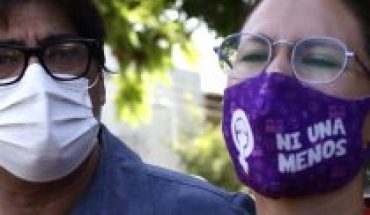
From the perspective of communication, the political call that came out of The President of the Supreme Court, Guillermo Silva, at the opening ceremony of the 2020 judicial year is interesting.
The highest authority of the judiciary held that it is “imperative to call on political and social actors to make an effort to listen to each other”, this with the aim of reaching “consensus and yielding position”.
The tension that the country experiences, beyond our political convictions, has, as it diaphanously is externalized from the analysis carried out by the highest court, a common denominator: the diagnosis that today we are in the midst of a serious difficulty in communicating, what manifested in the “denial of the other”, to paraphrase Jean Paul Sartre.
There are explicit and implicit discourses that exalt, on one side and on the other, issues that serene reason would condemn, but which the radicalization of interpretations leaves them in a kind of empty limbo of valific concepts. In other words, it depends on the position (political and ideological) from which it is being interpreted, the relative value given to that sign of the times.
We know that the action of communicating implies complexity in social interaction; and if it did not exist, no one would be able to fully know the world around us, let alone share the experiences and interpretations of each human being with others. There is then a deep tension between the sign, the meaning and the signifier, where depending on your vision, it will be the interpretation.
For example, for a part of Chilean society, the “first line” is inconceivable, as it represents destruction and chaos. For another universe, it is a sign representing a group of subjects who have even been defined as heroes, as happened at the Latin American HRD Forum held in January 2019 at the former Congress.
And, likewise, a small final fraction does not understand the ultimate end of this group.
In the first two cases, the three variables are aligned for those in those positions, but in the third of the groups there is a disconnect between sign, meaning and sign.
Communication is itself an exercise in compromise, where the parties must yield and face interpretations of a reality. In essence, as Fernando Zamora argues, “almost daily we are part of the enigmatic process by which someone communicates or hints at something to someone, but where the question how do two people understand each other?, [sigue siendo] an unsolved mystery; this situation gives way to the problem of alterity”; that is, the existence of the other.
From this perspective, in order to ensure that this is not a dialogue in which the parties are not heard, Chile’s political and social actors require a path that allows them to: (1) agree on a definition of post-18 October reality; (2) establish discursive categories that guide and determine growth and development goals for the next 50 years; (3) a common analysis of model errors and (4) the elaboration of a sign (meaning and significant) that allows us to re-understand ourselves.
It is very important to understand that communicating — a scarce good these days — necessarily implies an act of interpreting and understanding reality, but that it must be from a collective and not from a permanent division.
The content poured into this opinion column is the sole responsibility of its author, and does not necessarily reflect the editorial line or position of El Mostrador.





